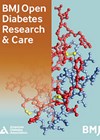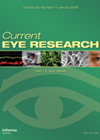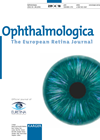You searched for "diabetic retinopathy"
Developing a training model to strengthen diabetic retinopathy screening through a VISION 2020 LINK in India
1 February 2022
| Anshul Chauhan, Mona Duggal, Ankita Kankaria, Geeta Menon (Prof), Marcia Zondervan, Covadonga Bascaran
|
EYE - Vitreo-Retinal, EYE - Imaging, EYE - General
I. Development of LINK Partnership A VISION 2020 LINK India was established by signing a Memorandum of Understanding (MoU) in 2018 between the Post Graduate Institute of Medical Education and Research (PGIMER), Chandigarh, India, Frimley Health NHS Foundation Trust and...
Strengthening diabetic retinopathy services in Nigeria through DR-NET – from grass roots to national policy development
3 August 2023
| Oteri Okolo, Dennis Nkanga, Hannah Faal, Marcia Zondervan, Covadonga Bascaran
|
EYE - General
This is the third article in a series (see Part 1 and Part 2) reflecting on how shared learning via networks of UK and international eye health professionals is contributing to reducing unnecessary blindness in Nigeria. Earlier articles focused on...
A scoping review of artificial intelligence tools for diabetic retinopathy in low- and middle-income countries
4 December 2023
| Elliott Taylor
|
EYE - Vitreo-Retinal
|
developing countries, diabetic retinopathy, information technology, public health
The authors conducted a scoping review to summarise the literature relating to artificial intelligence (AI) tools for diabetic retinopathy (DR) in low- and middle-income countries (LMICs). Eighty-one studies were included, following a comprehensive literature search. The majority of studies were...
Diabetes and diabetic retinopathy: Changes in understanding of the disease over the last 25 years and how the UK is helping low-income countries tackle the challenges
1 June 2018
| Marcia Zondervan, Covadonga Bascaran, Frank Sandi, Chloe Cornes, Pippa Williams
|
EYE - Vitreo-Retinal, EYE - General
Diabetes – a historical perspective Diabetes mellitus (DM) is a chronic disease caused by inherited and / or acquired deficiency in production of insulin by the pancreas, or by the ineffectiveness of the insulin produced. Such a deficiency results in...
GREG (Gloucestershire Research & Education Group): Introduction to Grading Diabetic Retinopathy (DR)
11 November 2024
-12 November 2024
This course has been designed to introduce students to grading in diabetic retinopathy, based around national standards. It consists of pre-course online learning, and two days of face to face training. It explores diabetic retinopathy in depth, and provides students with an extensive understanding of how this condition is classified.
The teaching is provided by Gloucestershire Research & Education Group and participants will receive an in-house certificate from the Gloucestershire Research & Education Group, on successful completion.
GREG (Gloucestershire Research & Education Group): Advanced Grading in Diabetic Retinopathy (DR)
19 November 2024
-20 November 2024
This course has been designed to develop students’ knowledge further in the intricacies of diabetic retinopathy grading, to include ROG and arbitration. It consists of two days face-to-face training. We include lectures exploring patients with more complex needs and non-routine pathology. The course provides the grader with the opportunity to make clinical decisions and discuss outcomes.
The teaching is provided by Gloucestershire Research & Education Group and participants will receive an in-house certificate from the Gloucestershire Research & Education Group, on successful completion.
The effect of everolimus on retinal pigment epithelium and proliferative vitreo-retinopathy
1 August 2018
| Kurt Spiteri Cornish
|
EYE - Vitreo-Retinal
The principal cells involved in proliferative vitreo-retinopathy (PVR) are retinal pigment epithelial cells (RPE). Everolimus is a drug used in renal cell carcinoma which targets and inhibits a key regulatory protein in cancer (mTOR). In this study, the authors investigated...
Correlation between anti-retinal antibodies and proliferative vitreoretinopathy (PVR)
1 October 2018
| Kurt Spiteri Cornish
|
EYE - Vitreo-Retinal
The pathological basis of PVR is not clearly understood and there are no effective medications targeting this condition. This cross-sectional study looked at the possible association of anti-retinal antibodies with patients with PVR and retinal detachment (RD). Aqueous and vitreous...
Infliximab in treatment of PVR
28 February 2025
| Kurt Spiteri Cornish
|
EYE - Vitreo-Retinal
In this phase 2 randomly controlled trial, 66 patients with primary rhegmatogenous retinal detachment and grade C proliferative vitreoretinopathy (PVR) were randomised in a 1:1 ratio to undergo pars plana vitrectomy (PPV) and silicone oil (SO) injection with or without...
Injection of methotrexate into silicone oil-filled eyes for grade C PVR
1 October 2019
| Sofia Rokerya
|
EYE - Vitreo-Retinal
Methotrexate (MTX) is an antineoplastic antimetabolite with immunosuppressant properties. Folate antagonism is known to contribute to the antiproliferative effects of MTX, and release of adenosine from cells and inhibition of polyamines may explain its anti-inflammatory effects. These activities contribute to...







